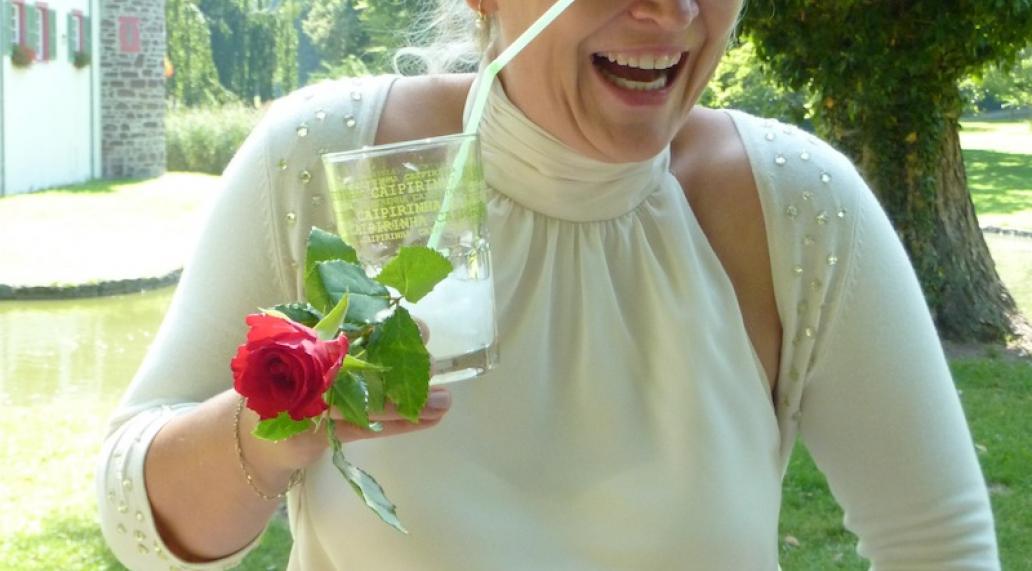
In the morning, sending the youngest off to school and the oldest to training, going to work, taking care of her mother from 2:00 PM to 6:00 PM, and then children, husband, and her own household. That was Petra Knoll's daily routine from August to December 2011. To be able to care for her mother, the instructor even moved closer to her parents. A decision she has never regretted for a single day.
My parents have always been there for me. For my mother, it was always a given that she would support me. Therefore, it was natural for me to support her and, in this case, to take care of her," Petra says. "When I was a single mother, my mother constantly took care of my boys. Saturdays, when I had to go to Mannheim for my additional training, but also during the week when one of the boys got sick and I had to work." And that, even though Petra's mother was also working. Together with her husband, she ran a nursery. "She always, literally, dug herself out of her work to support me," says the daughter.
In 2006, everything suddenly changed. Petra's mother was diagnosed with age-related leukemia. From the first day, the daughter, who was still a single mother at the time, was with her mother every day. But even though she lived only five kilometers away from her parents' house, it soon became too much for her, and she decided to look for a house nearby. "I didn't know how long I would have to take care of my mother. Living near her made everything much easier. For me, but also for my children. I cooked in advance in the evenings, and the whole family then met at my parents' house for lunch. After lunch, Kristoffer did his homework at his grandparents' place, and I could take care of my mother in the meantime," says the mother of two.
Since the mother needed round-the-clock care in recent months, Petra and her father had worked out a strict care schedule that all involved would not have endured this difficult time without. In the morning, the nursing service and friends came, Petra took over at midday, and in the evenings and at night, the father did.
In the months of intensive care, we made sure that there was always someone with my mother, but also that we, the caregivers, always had breaks. Otherwise, we wouldn't have been able to handle it so well," says Petra, who also admits that neither she nor the other caregivers could have maintained this situation permanently. "If my mother had needed care for a longer period, we would have sought help." But even in Petra's own household, not everything would have gone so smoothly if the whole family hadn't pitched in. "There is no 'Hotel Mama' with us. Even now, after my mother's death," Petra explains with a smile on her lips. "With us, everyone has to pitch in. It's all about give and take, and if my boys want to take something, they also have to give something. For example, helping out with household chores.
Care is not only time-consuming, the mental strain should not be underestimated either," says Petra. That she was able to take care of her mother so intensively despite having children, a job, and her own household, was also due to her very understanding husband and her equally understanding colleague. "My husband took care of his own grandmother and therefore knows what it means to provide care. He always supported me mentally. I never heard any reproach from him. Even when the phone rang in the middle of the night and I rushed after my mother to the hospital because my father couldn’t do it. Thomas was always the one who said, 'Just go!' And when I came to work in the morning after a sleepless night at the hospital bed, my colleague was there for me." Not working never crossed the trainer’s mind. "My parents never wanted me to give up my job to care for them, and I didn’t want that either. I love my work, and during the care period, I needed the balance.
Looking back, Petra realizes that it was not the time of intensive care, but the time before that was more strenuous. "The last few months were manageable. I knew: from 2:00 PM, I would be with my mother for four to five hours. In the months before that, during chemotherapy, uncertainty was our constant companion. We never knew what would happen next. We were on constant alert. Going to the movies was unthinkable because we would have had to turn off our phones." Even during this time, having an understanding environment was very helpful.
Even today, eleven months after their mother's death, Petra and her sons are still at the grandparents' house every day. Petra still cooks every evening - Grandpa is learning it right now - and Kristoffer and Lars still come to Grandpa's after school or work. Petra now works full-time with her employer, but she is quite sure: "I would do it the same way again. I wouldn't want to miss this intense time with my mother.


